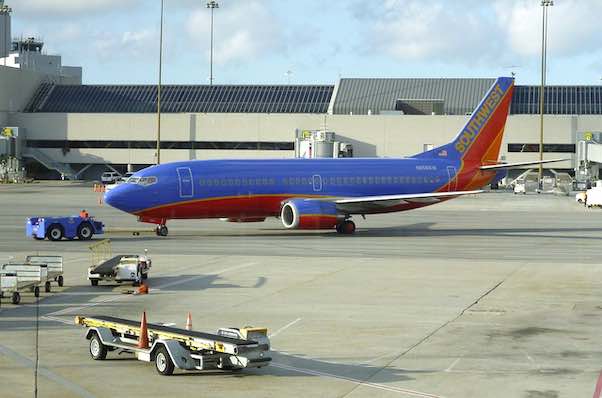
Southwest Airlines’ organizational culture promotes employee well-being, pointing to the underlying principle that employees who are properly taken care of are the ones who provide the highest quality of output. In theory, organizational culture or corporate culture defines the philosophy, beliefs, traditions, core values, and behavioral expectations among employees. Work culture influences every aspect of business and serves as a critical success factor in the company’s long-term growth in the global commercial aviation industry. The company culture supports the achievement of Southwest Airlines’ corporate mission and vision statements, which require high quality and popularity to ensure long-term profitability. The company’s work culture supports employee involvement, satisfaction, morale, and motivation to aim for high performance that relates to the mission and vision. As one of the leading airlines, Southwest takes pride in its organizational culture, as other firms attempt to emulate this cultural approach. Thus, the enterprise illustrates the significance of its corporate culture in achieving success in the airline industry.
The commercial aviation industry involves aggressive competitors that utilize various factors, such as cost and pricing, to reinforce their competitive advantages. In competing with United Airlines, Delta Air Lines, and American Airlines, Southwest Airlines Co. considers its organizational culture as a strategic management tool for enhancing the business in terms of quality of multinational operations and organizational efficiency. Through its corporate culture, the company addresses the competitive environment by focusing on its human resource management and development practices, such as in handling training and motivational programs for employees in flight operations. Such organizational cultural factors align with Southwest Airlines’ generic competitive strategy and intensive growth strategies to ensure competitive advantages in the industry.
Characteristics of Southwest’s Organizational Culture
Southwest Airlines has an organizational culture for employee well-being. In developing and maintaining its corporate culture, the company’s administration focuses on individual employees as the foundation of its commercial aviation business. As a result, Southwest Airlines has various programs and policies that address employees’ morale, motivation, and job satisfaction. This aspect of the company culture contributes to satisfactory employee performance, which leads to high business performance in the air travel market. The following are the main characteristics of Southwest Airlines’ organizational culture:
- Employee-centered appreciation, recognition, celebration
- For employees: Living the Southwest Way
- For customers and other business stakeholders: Working the Southwest Way
Employee-Centered Appreciation, Recognition, and Celebration. Southwest Airlines’ organizational culture highlights the significance of its workforce as a major factor in long-term success. Through its Culture Services, the company reinforces its culture, while making employees feel that they are valued in the airline corporation. This valuing in the corporate culture comes in the form of formal and informal appreciation and recognition, as well as various celebration events, such as Southwest-sponsored parties that encourage employees to have fun and enjoy working for the company. The formal and institutionalized implementations integrate the work culture into the company’s organizational development and organizational design/system for operations in the air transportation sector. Thus, this corporate cultural characteristic is integrated into Southwest Airlines’ organizational structure (company structure).
Living The Southwest Way. Given the emphasis on appreciation, recognition, and celebration, the company facilitates the Southwest Way of living among employees. This characteristic of the aviation company’s organizational culture motivates workers to strive to reach ideals in life, such as excellence, perseverance, and respect. These values are integrated into Southwest Airlines’ corporate culture for the purpose of optimizing employee performance and satisfaction in the workplace and outside the workplace. As a result, the company applies a holistic organizational culture approach in managing human resources to achieve the ideal work-life balance.
Working The Southwest Way. Concerning other areas of the business, the Southwest Way of working is implemented as a cultural approach throughout the organization. This aspect of the organizational culture focuses on employees’ performance for the benefit of the business and its stakeholders, including customers (passengers) and investors. For example, the Southwest Way of working motivates workers to ensure safety, regulatory compliance, and friendliness in providing service. These values address work-related strategic objectives, indicating the company’s corporate culture and its link to the industry environment of commercial aviation.
Southwest’s Culture: Advantages & Strategic Considerations
Employees are at the center of the organizational culture of Southwest Airlines. The company benefits from this cultural approach, especially in bolstering the contributions of human resources in the success of the commercial aviation business. For example, the effects of this corporate culture combine with the business strengths identified in the SWOT analysis of Southwest Airlines Co. to reinforce competitive advantages over major competitors. This reinforcement is advantageous in ensuring the company’s long-term success as a major firm in the civil aviation market. Considering tough competition in the industry, the business culture serves as a beneficial tool for the company’s strategic planning and strategic positioning.
References
- Herget, J. (2023). Challenges to Corporate Culture: Today and Tomorrow. In Shaping Corporate Culture: For Sustainable Business Success (pp. 149-157). Berlin, Heidelberg: Springer Berlin Heidelberg.
- Southwest Airlines Co. – Careers – Culture.
- Southwest Airlines Co. – Careers – Diversity.
- Southwest Airlines Co. – Form 10-K.
- Southwest Airlines Co. – Our People and Culture.
- Zhang, W., Zeng, X., Liang, H., Xue, Y., & Cao, X. (2023). Understanding how organizational culture affects innovation performance: A management context perspective. Sustainability, 15(8), 6644.